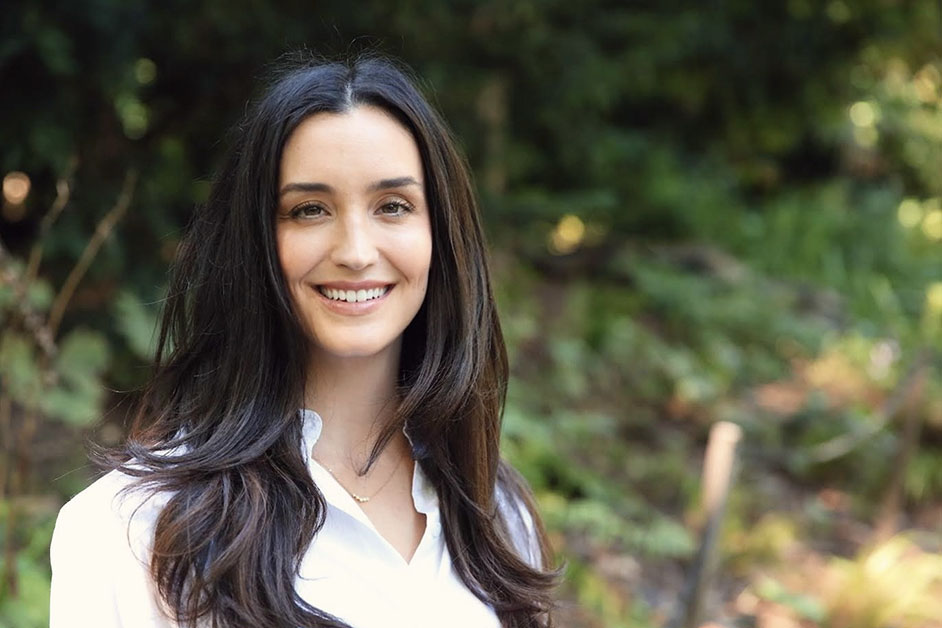
Dr. Barbara Spencer is a Postdoctoral Fellow working with Corey McMillan in the Penn FTD Center. She joined Penn in 2020 after receiving a PhD in Neurosciences from UC San Diego. Her research looks into disentangling heterogeneity in the FTD-ALS spectrum using genotype and transcriptomic approaches.
We talked with Dr. Spencer about her journey in neurodegenerative research and what she finds most exciting about the field.
Early Career
Despite her favorite subjects in school being math and science, Spencer says she never intended to have a career as a researcher until much later in her undergraduate education. That didn’t stop her from taking an early interest in genetics when she learned about ‘trisomy 21’ and how it relates to specific disabilities. She mentions that connecting this lesson to understanding her sister’s Down’s Syndrome was a seed for exploring genetics deeper.
In undergrad, she joined a human cognitive neuroscience research lab, making her consider a career in the field. That interest led to a position studying Schizophrenia at the National Institute of Health (NIH) where her interests in neurodegenerative diseases (NDs) would grow.
“I was working at the National Institute of Mental Health studying genetic risk for schizophrenia by identifying genetic variants associated with brain activation during fMRI. So, I got a crash course in a lot of different techniques and a whole new field that I was unfamiliar with.”
“But what I wanted to carry forward from that was my background in imaging and genetics and how we can use both to study disease broadly.”
Making a Switch
After rotating in several graduate labs, Spencer decided to focus her dissertation on disentangling heterogeneity in Alzheimer’s disease. The fact that Alzheimer’s co-occurs with a range of different pathologies and the idea genetic risk for multiple disorders may overlap was a novel challenge to her.
While working on these projects, she met Dave Irwin who specialized in the pathological traits of Frontotemporal Degeneration (FTD). Despite having sparse experience with FTD, she made a career switch to understanding the disorder and its genetic risk factors.
FTD is caused by distinct proteins (TDP-43 or tau), but these cannot be clinically distinguished during life. To further complicate things, some of the same genetic mutations that cause FTD can also cause ALS. These issues can make diagnosing and studying FTD more difficult than Alzheimer’s, but Spencer says that challenge is what interested her the most.
“It’s this really complicated picture where we have a lot to try to understand about how genes relate to the different clinical and pathological features of disease. It was kind of a whole new world for me. I was already into the idea of studying neurodegenerative disease heterogeneity, but I didn’t really know anything about FTD or TDP-43 until I started talking more with Dave Irwin. Eventually I came to the center and really got into developing the project more.”

Impact of Inpatient Interaction
Unlike many researchers in her field, Spencer spent considerable time working face-to-face with patients with schizophrenia in her NIMH lab and now benefits from patient and caregiver perspectives at the Penn FTD Center’s annual Familial and Caregiver conferences.
“A lot of researchers are PhDs, we’re not MDs. We don’t see patients. We don’t have a standard part of our training that is seeing patients clinically, but a lot of us are working on diseases affecting people. You’re removed from that in a sense.”
“I think it’s hard to understand neurodegenerative diseases without understanding all of the different individual ways they present and hearing how they impact people. That’s just – I mean – that’s what you’re doing it for. Obviously, the science is the question, it’s the mystery. But at the end of the day, the reason we’re studying this is because this is a devastating neurodegenerative disease.”
Spencer talks passionately about how invaluable it is to not think purely scientifically about the ways neurodegenerative diseases impact people, but rather bring it to a human level. She posits that learning directly from caregivers and people living with NDs makes better researchers, especially when they consider how these diseases may impact their own families.
Looking to the Future
“I think there are unlimited interesting questions”
When asked whether she sees herself investigating different fields in the future, she says that those who truly love research can be interested in almost anything. Above all, she says that investing time and finding a passion for the background work can take someone to a place where they are asking new questions in their field. While she doesn’t foresee herself switching from studying neurodegenerative diseases, it’s clear there are no bounds to her imagination.
She even adds a piece of advice for younger researchers.
“I would say find an excellent mentor, someone who has a good lab environment, someone that you like working with, and you think whatever they’re doing is interesting. You can always go a different way from your original interests. Starting over is hard. Getting up to speed in a new field is hard. – But that’s not to say that, you know, interest won’t kind of take you in all different directions.”
Check out Spencer’s publications and LinkedIn.